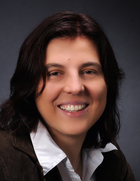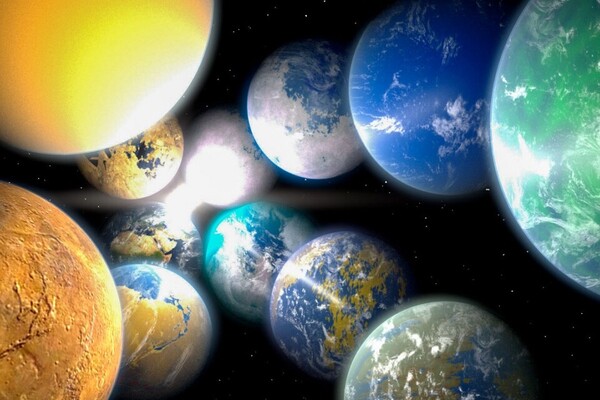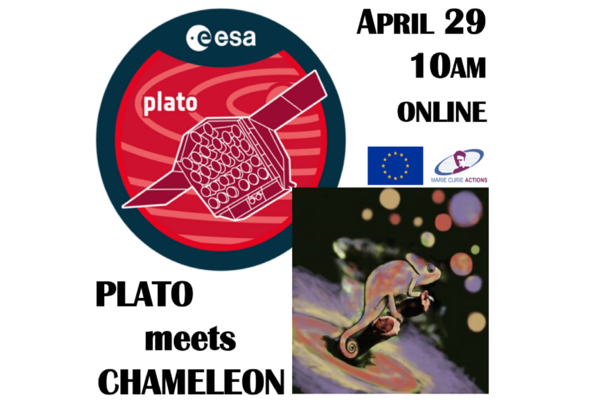
Career Summary
| 2022- | Research Associate for Exoplanet-Atmosphere-Modelling at IWF, Graz, Austria |
| 2022 | Royal Society University Research Fellow, St Andrews University, UK (Rocky EXOplanets in Time – Linking exoplanet atmospheres to their interior – from magma ocean evolution to prospects of habitability) |
| 2016-2021 | Independent Postdoctoral Researcher, Max Planck Institute for Astronomy, Heidelberg, Germany (3D climate & chemistry modelling on extrasolar gas giants and rocky worlds, PI for Hubble Space Telescope and Co-PI for ground based telescope observations) |
| 2012-2016 | Postdoctoral Scholarship in Exoplanet Characterization, Centre for mathematical Plasma-Astrophysics & Institute for Astronomy, KU Leuven, Belgium |
| 2004-2011 | Project manager (Mars Express, Venus Express, Rosetta & CoRoT), Department of Geophysics & Meteorology, University of Cologne, Germany |
Academic educaton
| 2012 | PhD in Geophysics „Tidal interaction of short-period extrasolar transit planets with their host stars“, Department of Geophysics & Meteorology, University of Cologne |
| 2002 | Diploma in High Energy Particle Physics: „Impulsrekonstruktion von Muonen mithilfe der Vorwärtsdriftkammern des ZEUS-Detektor“, University Bonn |
Bachelor & Master Projects
There are always student projects available in:
- Magma ocean modelling
- Atmosphere modelling (rocky & gas giant planets)
Scientific Software Development
EXORAD – 3D General Circulation Model (GCM) framework for exoplanets
- 3D climate map for tidally-locked Exo-Earths
- Impact of deep atmosphere on the climate of hot Jupiters
- expeRT/MITgcm – Highly efficient 3D GCM for exoplanets with full radiative transfer
VPLANET/MagmOc – Opensource Magma ocean model for Solar System planets and beyond
Scientific Community Services
- CHaracterising ExOPlanet Satellite (CHEOPS) – Collaborating Scientist
- JWST – Member of the Early Release Science Team
- PLAnetary Transits and Oscillations of stars (PLATO ) – Member of work package Atmosphere
- Partner in CHAMELEON Virtual Laboratories for exoplanets and disks Marie Curie international training network
- Founding member of Next Millenium Planet Simulation consortium (NMPS)
- Main organizer for 3rd CHAMELEON School in Graz (January 2023)
- Main organizer for 2020 Leiden international workshop “Tackling the
complexities of substellar atmospheres – Solar System to brown dwarfs - Co-Chair and Organizer for STARPLANET2019, Ringberg workshop on “star-planet connection”
Observational Campaigns (latest)
| 2022 | “Exploring the morning and evening limbs of a transiting exoplanet” PI: Espinoza, Co-I: Carone with 3D model, JWST G1 awarded |
| 2022 | “Mineral clouds in the atmosphere of the hot Jupiter HD189733b”, PI: Min, M., Co-I: Carone with 3D model, JWST G1 awarded |
| 2020 | “How often does a planet spin-up its host star?”, MPG2.2m/FEROS, PI: Bachelor student Annika Oetjens (Co-I with Maria Bergemann) |
| 2020/2021 | “Towards Constraints On Morning And Evening Terminators Of Distant Worlds”, TESS, Cycle 3, PI: N. Espinoza, Co-I: Carone with 3D model) |
| 2019 | "Now you see me the WASP-117b version – a Saturn-like exoplanet that resides in 2 different chemical regimes", HST GO 15301, PI: Carone |
| 2018 | "Ground based high resolution spectroscopy of WASP-117b simultaneously with Hubble measurement", PI: Fei Yang, Co-PI: Carone, VLT/ESPRESSO |
| 2017 | “Determining transit timing for exo-Saturn WASP-117b”, PI: Andres Jordan, Co-PI: Carone on CHAT(Chile) and Los Cumbres (South Africa) |




